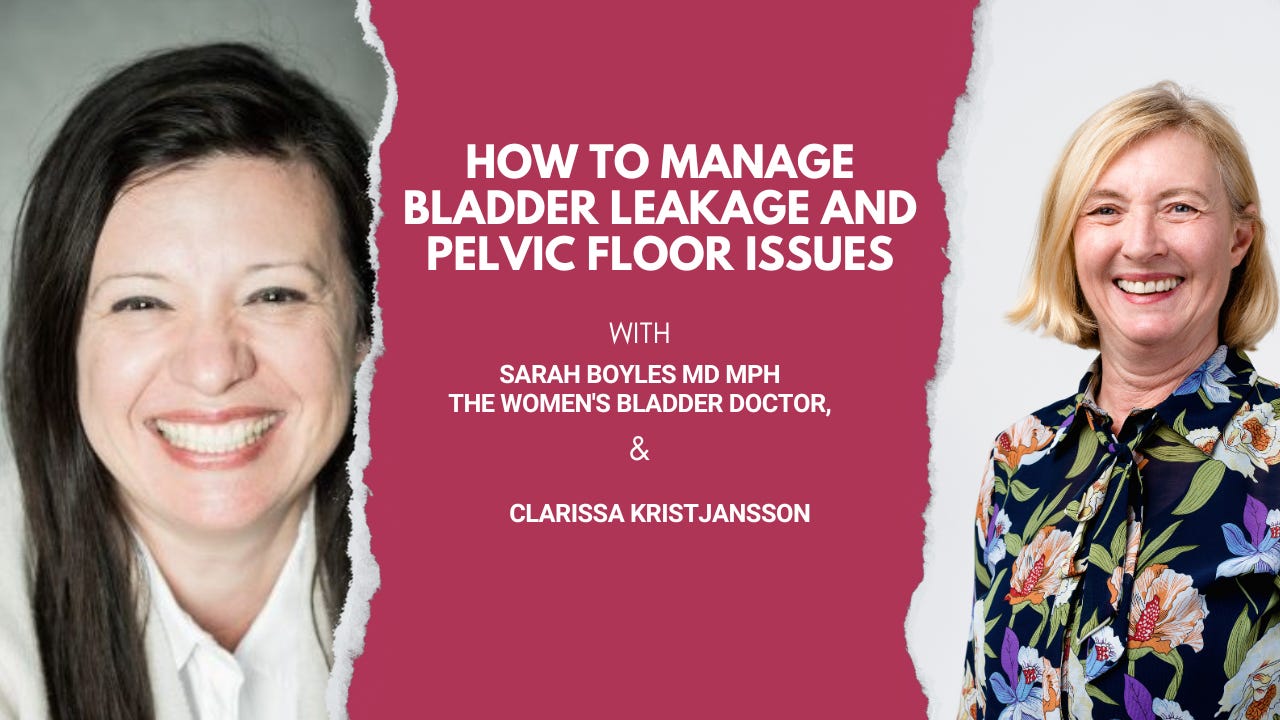✨ Urinary incontinence may not be a common conversation topic, but it profoundly impacts quality of life. Even small leaks can lead to reduced fitness, low self-esteem, relationship struggles, and even anxiety and depression. It's time to take control! ✨
This week on @thrivingthrumenopause, we're thrilled to welcome urogynecologist Dr. Sarah Boyles to discuss urinary incontinence and pelvic health. Here's what you'll learn:
🔸 Urinary incontinence: A common issue for women of all ages, not just post-menopause.
🔸 Contributing factors: High-impact sports, pregnancy, hormonal changes, muscle atrophy, and pelvic floor injuries.
🔸 Importance of treatment: Enhances quality of life, social engagement, and mental health.
🔸 Effective treatments: Weight loss, vaginal estrogen, pelvic floor exercises, physical therapy, pessaries, injections, surgeries, medications, and nerve stimulation.
Dr Sarah Boyles discusses real solutions to improve your pelvic health and empower you to live your best life!
📅 Tune in to this episode and take the first step towards reclaiming your confidence and well-being.
Takeaways
Urinary incontinence is a common issue that can affect women of all ages, including teenagers and young women.
Activities like high-impact sports and pregnancy can contribute to pelvic floor issues and urinary incontinence.
Treating urinary incontinence is important to maintain quality of life, social engagement, and mental health.
Hormonal changes, muscle atrophy, and pelvic floor injuries are factors that can contribute to urinary incontinence in menopausal women.
Weight loss can improve symptoms of urinary incontinence.
Treatment options for urinary incontinence include vaginal estrogen and pelvic floor exercises.
Balance exercises can help improve core strength and pelvic floor health. Proper technique, such as exhaling and squeezing the pelvic floor, is crucial during strength training to avoid worsening pelvic floor issues.
Journaling symptoms and identifying bladder irritants can help manage bladder leakage.
Treatment options for bladder leakage include physical therapy, pessaries, injections, surgeries, medications, and nerve stimulation.
Looking for more support? Dr. Boyles' Bladder 101 course provides education and guidance on managing bladder issues. https://thewomensbladderdoctor.com/courses/
Follow Dr. Boyles on https://www.instagram.com/thewomensbladderdoctor/
Tune into her podcast, While You Wait https://thewomensbladderdoctor.com/whileyouwait-podcast/
Grab your copy of Beyond Hormones: 7 Holistic Ways to Thrive Through Menopause https://bit.ly/49XBI1a














SE7:EP7 How to Manage Bladder Leakage and Pelvic Floor Issues in Menopause